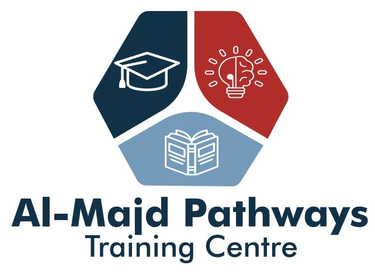
Call & Contact Centre Workshop: Enhancing Customer Satisfaction
£5250.00£4800.00
INTRODUCTION
For the majority of organizations, the call center serves as their primary point of contact with customers. Customer service advisors and telesales agents must be well-organized, respond positively to customers, deliver excellent experiences, and provide effective solutions. This requires confidence, telephone skills that build rapport with customers, the ability to uncover and meet callers' needs, and the capacity to identify potential additional revenue through cross-selling and upselling.
Al-Majd Pathways Centre's Call & Contact Centre Workshop is designed to help Call Centre and Contact Centre staff members develop the capabilities required to understand and meet customer expectations while increasing revenues and enhancing the organisation's reputation. By the end of this training course, participants will have a clear understanding of how to connect with and professionally serve customers while working in a Call or Contact Centre environment.
TRAINING OBJECTIVES
Upon completion of the Call & Contact Centre Workshop, participants will have acquired essential knowledge and skills in:
Delivering high-quality customer service and sales support over the telephone
Creating a great first impression using verbal and non-verbal communication
Building rapport with customers on the phone, demonstrating friendliness, helpfulness, and empathy
Understanding customers, their needs, and expectations, and offering solutions that meet those needs
Effectively handling difficult customers, diffusing emotions, and maintaining composure to resolve problems quickly
Identifying sales opportunities while handling inbound service calls and having the confidence to respond proactively and positively to leads
Making effective outgoing calls that reach decision-makers and lead to sales
WHO SHOULD ATTEND?
Al-Majd Pathways Centre's Call & Contact Centre Workshop is valuable for customer service advisors, telesales staff members, and team leaders working in a call center or contact center environment.
TRAINING APPROACH
This training course combines theory and industry best practices with practical sessions, following adult learning principles and blended learner-centred approaches. Each module includes practical exercises to allow participants to apply their new knowledge and skills. The training utilizes small and large group exercises, videos, case studies, peer exchanges, brainstorming, role plays, and discussions.
Participants are encouraged to reflect on and discuss their own professional issues and experiences. Approximately 50% of the training is experiential, and 50% is theoretical.
TRAINING OUTLINE
Day 1: Understanding Customer Service
Overview of Call and Contact Centres
The role of the call/contact centre and the agent/advisor's role
The importance of service standards and consistency in customer treatment
Impact of the call/contact centre on business goal setting and objectives
Delivering value to the business: why key performance indicators (KPIs) matter
Core Customer Service Skills
Active listening
Creating empathy and respect
Problem-solving
Distinguishing between product features and benefits
Becoming Customer-Focused
The essential elements of service excellence
Understanding what satisfies customers
Tailoring the sales process to meet customer needs
Day 2: Essential Telephone Skills
Making the Call
Getting through to the decision maker
Types of gatekeepers and how to bypass them
Using a professional greeting for a positive first impression
Creating a Positive Impression
Establishing a connection through tone of voice and clear articulation
Projecting friendliness, confidence, expertise, and interest
Adapting to callers' voices, language, and personalities
Building Rapport on the Phone
Interacting positively with callers and making them feel valued
Maintaining calm, personability, friendliness, helpfulness, and respect
Creating natural and conversational interactions
Day 3: Delivering Excellent Customer Service
Truly Understanding Customers' Needs
Identifying types of customers and their service preferences
Differentiating between customer needs, wants, and expectations
Demonstrating how products and services meet customers' needs
Considering multicultural and global customers
Developing Rapport through Verbal and Non-Verbal Communication
Using vocal elements effectively (pitch, tone, rhythm, loudness, resonance, inflection)
Employing facial expressions, gestures, posture, and breathing techniques
Matching callers' speech and intensity
Providing Solutions & Adding Value
Demonstrating a positive and helpful attitude
Practicing active listening
Using positive language and affirmation to create empathy
Employing questioning techniques to uncover needs
Dealing with Difficult Customers
Strategies for listening and responding under pressure
Identifying the root causes of customer frustration
Sincerely apologising and thanking customers for their feedback
Ensuring prompt resolution to customer issues
Day 4: Managing Inbound Sales and Service Calls
Delivering Service Excellence
Identifying the reason for the call and the caller's expected solution
Utilising questioning techniques to confirm understanding
Presenting solutions that satisfy customers' needs
Dealing with Customer Complaints
Viewing complaints as opportunities for improvement
Identifying the root causes of problems
Sincerely apologising and thanking customers for their feedback
Ensuring that issues are resolved to the customer's satisfaction
What to Do When You Can't Say Yes
Providing reasonable explanations
Suggesting options and alternatives
Maintaining a friendly, understanding, fair, and empathetic approach
Escalating issues if the customer remains dissatisfied
Turning Service Calls into Prospective Sales
Identifying sales opportunities during inbound calls
Confidently asking questions that generate sales leads
Introducing ideas and making suggestions naturally and conversationally
Cross-selling and upselling with confidence
Day 5: Making Outbound Sales Calls
Structuring Outbound Calls
Effective preparation for successful sales calls
Opening calls with benefits for prospective customers
Creating an elevator pitch for a positive response
Using open-ended questions to uncover information and tailor your pitch
Overcoming Objections
Recognising different types of objections
Preparing responses to common objections in advance
Handling surprise objections with six easy steps
Effective Closing Strategies
Testing assumptions about readiness to buy
Trying out a close to confirm assumptions
Gaining confirmation of the customer's intention to purchase
Preventing buyer's remorse
What If They Don't Buy
Gathering information for future calls
Offering a "lead magnet" to maintain their interest
Agreeing on how to stay in touch
Format: Onsite
Language(s): English
Duration: One Week
Certificate of Completion: Upon successful completion of the course, participants will receive a Certificate of Completion from Al-Majd Pathways Centre (APC).
Get in touch with us today.
Follow
Sign-up for our newsletter
0044 7466410010
©2025 All rights reserved.
